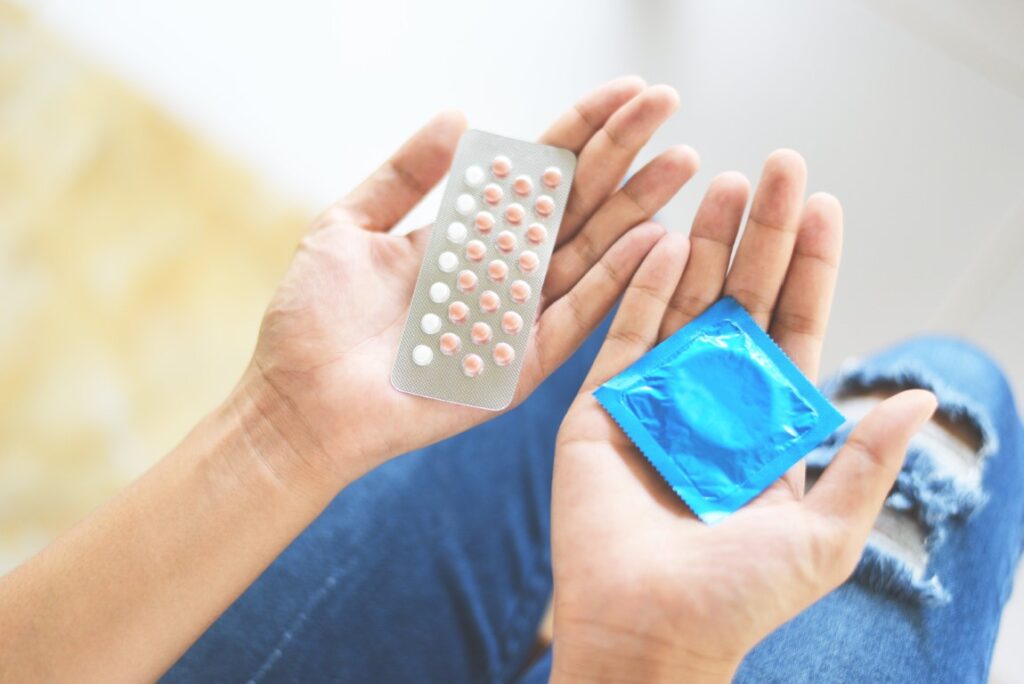Picture this: Practicing preventive measures can significantly reduce the risk of sexually transmitted diseases. From safe sex practices to open communication with partners, taking proactive steps is paramount.
But what if you could do more than just the basics? Stay tuned to discover the lesser-known strategies that can further safeguard your sexual health and well-being.
Importance of Safe Sex Practices
To protect yourself and your partner from sexually transmitted diseases, practicing safe sex is crucial. Prevention education plays a vital role in understanding the risks and how to mitigate them. By learning about safe sex practices, you can reduce the chances of contracting or spreading infections. Risk reduction strategies such as using condoms consistently and correctly, limiting sexual partners, and discussing STI testing before engaging in sexual activities are essential components of safe sex.
Prevention education empowers you to make informed decisions about your sexual health. Knowing how to protect yourself and your partner through safe sex practices is key to preventing the transmission of sexually transmitted diseases. By taking proactive steps to educate yourself on risk reduction, you're actively investing in your well-being and the well-being of those you care about. Remember, practicing safe sex isn't only responsible but also liberating, as it allows you to enjoy intimacy without unnecessary worries.
Regular Testing and Screening
Regular testing and screening for sexually transmitted diseases is a proactive step in safeguarding your sexual health. It's crucial to prioritize your well-being by staying informed and taking charge of your sexual health. By undergoing regular testing and screening, you can detect any potential issues early on, allowing for timely intervention and treatment. This proactive approach not only promotes your own health but also contributes to the well-being of your sexual partners and the community at large.
Benefits of Regular Testing and Screening:
- Early Detection: Catching any sexually transmitted infections early increases the chances of successful treatment and reduces the risk of complications.
- Preventive Care: Regular testing helps in preventing the spread of diseases, protecting both yourself and your partners.
- Peace of Mind: Knowing your status can alleviate anxiety and empower you to make informed decisions about your sexual health.
Proper Use of Condoms
Let's talk about the importance of using the right condom size for the best protection.
Choosing the correct size ensures a snug fit that reduces the risk of breakage during use.
Additionally, using lubrication can enhance comfort and prevent condom tears, providing an extra layer of safety.
Condom Size Matters
Choosing the right condom size is essential for effective protection and comfort during sexual activity. When it comes to condom fit, size accuracy matters significantly. Here are some key points to consider:
- Snug Fit: A condom that fits properly should feel snug but not too tight, ensuring it stays in place during intercourse.
- Comfort: Optimal size accuracy enhances comfort, reducing the risk of breakage and slippage.
- Safety: Using the right condom size not only improves protection against sexually transmitted diseases but also enhances pleasure for both partners.
Lubrication for Safety
For maximum safety and effectiveness during sexual activity, ensuring proper lubrication when using condoms is crucial. Personal lubricants can enhance comfort and reduce friction, making the experience more enjoyable.
When selecting a lubricant, opt for water-based or silicone-based options as oil-based lubricants can weaken condoms. Remember, natural lubrication isn't always sufficient, so don't hesitate to use additional lubricants. These products can help prevent condom breakage and minimize the risk of sexually transmitted infections.
If you prefer natural alternatives, aloe vera or coconut oil can be viable options, but always check for compatibility with condoms. Prioritize your well-being by choosing the right lubrication for a safer and more pleasurable experience.
Correct Condom Application
To ensure maximum protection and reduce the risk of sexually transmitted infections, mastering the correct application of condoms is essential. When it comes to condom effectiveness, proper usage is key. Here are some tips for ensuring you're using condoms correctly:
- Pinch the Tip: Squeeze the reservoir tip between your fingers to remove air and leave space for ejaculate.
- Roll it Right: Unroll the condom down the shaft of the erect penis all the way to the base.
- Correct Fit: Ensure you're using the right condom size for a snug yet comfortable fit.
Open Communication With Partners
Maintaining open communication with your partners is crucial in preventing sexually transmitted diseases. By establishing healthy boundaries and fostering mutual respect within your relationships, you create a safe space for discussing sensitive topics like sexual health. Open communication allows you to openly talk about your sexual history, previous STD testing, and any concerns you may have regarding protection during intimate moments.
When both partners feel comfortable expressing their needs and concerns, it becomes easier to discuss the importance of practicing safe sex, getting tested regularly, and seeking medical help if necessary. Remember, being honest and upfront about your sexual health isn't only a sign of respect for your partner but also a proactive step towards safeguarding both of your well-being.
Encouraging open dialogue can lead to increased trust and understanding between partners, ultimately strengthening the foundation of your relationship. So, don't hesitate to have those crucial conversations – they could make all the difference in preventing STDs and promoting a healthy, fulfilling partnership.
Vaccination Against STDs
Hey there! Ready to boost your defenses against sexually transmitted diseases?
Let's chat about the power of vaccines and why getting immunized is crucial.
Stay tuned to discover the different vaccine options available and why prioritizing your health through vaccination is key.
Vaccine Options
Considering the advancements in medical science, there are now effective vaccine options available for protecting against various sexually transmitted diseases. When it comes to vaccination against STDs, here are some key points to keep in mind:
- Vaccine Effectiveness: Vaccines can significantly reduce the risk of contracting common STDs.
- Side Effects: Like any medical intervention, vaccines may have mild side effects such as soreness at the injection site or a low-grade fever.
- Immunization Schedule: Follow the recommended immunization schedule provided by healthcare professionals to ensure maximum protection.
Stay informed about the available vaccines, discuss your options with a healthcare provider, and make empowered decisions about safeguarding your sexual health.
Importance of Immunization
To safeguard your sexual health effectively, ensuring you receive recommended vaccinations against sexually transmitted diseases is crucial. Getting vaccinated not only protects you but also contributes to the overall community health through herd immunity. By educating yourself on immunization and taking preventive care measures, you actively reduce the risk of contracting or spreading STDs.
Vaccines offer significant benefits by strengthening your immune system to fight off infections and lowering the chances of developing serious health complications. Understanding the importance of immunization empowers you to make informed decisions about your sexual well-being. Stay proactive in your health journey by staying up to date with vaccinations, as they play a vital role in preventing the spread of sexually transmitted diseases.
Avoiding Risky Behaviors
Engage in safe sexual practices to minimize the risk of contracting sexually transmitted diseases. One of the most effective ways to protect yourself and your partner is by avoiding risky behaviors. Here are some essential tips to help you stay safe:
- Use Protection: Always use condoms correctly to reduce the risk of STD transmission.
- Communicate Openly: Talk to your partner about your sexual health and history to ensure you're both on the same page.
- Get Tested Regularly: Make sure to get tested for STDs regularly, especially if you have multiple partners or engage in high-risk activities.
Frequently Asked Questions
Can Sexually Transmitted Diseases Be Transmitted Through Non-Sexual Activities?
Sexually transmitted diseases can be transmitted through non-sexual activities like oral transmission. To prevent this, use protection during oral sex, get tested regularly, and communicate openly with partners about sexual health. Stay informed and take charge of your well-being.
Is It Possible to Contract an STD Even if You Use Condoms Every Time?
Even with consistent condom use, there is still a risk of contracting certain sexually transmitted diseases. Condoms are highly effective against some STDs but not all. Understanding transmission myths and facts can help you make informed choices.
How Often Should Individuals Get Tested for STDs, Especially if They Are in a Long-Term Monogamous Relationship?
In a long-term monogamous relationship, it's essential to get tested for STDs regularly. Testing frequency can vary, but every 6 to 12 months is a good rule of thumb. Remember, prevention techniques and open communication are key.
Are There Any Alternative Methods of STD Prevention Besides Condoms and Vaccinations?
You can explore natural remedies like herbs and supplements as alternative methods for STD prevention. Behavioral interventions, such as open communication with partners and mutual testing, also play a crucial role in staying safe and healthy.
What Should Someone Do if Their Partner Refuses to Get Tested for STDs or Discuss Their Sexual History Openly?
If your partner avoids STD testing or discussing sexual history, set clear relationship boundaries. Communication is key – express your concerns and the importance of trust. Seek compromise, but prioritize your health and well-being.
Conclusion
In conclusion, taking proactive steps to prevent sexually transmitted diseases is crucial for your overall health and well-being.
By practicing safe sex, getting regular testing, using condoms correctly, communicating openly with partners, getting vaccinated, and avoiding risky behaviors, you can significantly reduce your risk of contracting STDs.
Remember, your sexual health is important, so make sure to prioritize it and take the necessary precautions to stay safe.
Stay informed, stay safe!


